Germany is one of the most popular travel destinations in all of Europe – and for good reason! From the bustling capital city of Berlin and the cultural highlights of Munich to the dreamy Rhine Valley and enchanting Black Forest, Germany offers something for every type of traveller. For English-speaking travellers, Germany is a convenient destination as it is home to the most non-native English speakers in all of Europe!
While over half of the German population speak English as a second language, it is still useful to learn a few phrases when visiting Germany. A great thing about the German language is that it is actually useful in quite a few European countries. While there are regional variations in the language, basic German will help you out in Austria, Luxembourg, Belgium, Switzerland and Lichtenstein where it is an official language!
To help you out with your travels in Germany or any of the above German-speaking nations, Expat Explore has compiled a list of handy travel phrases and common German words for travellers.
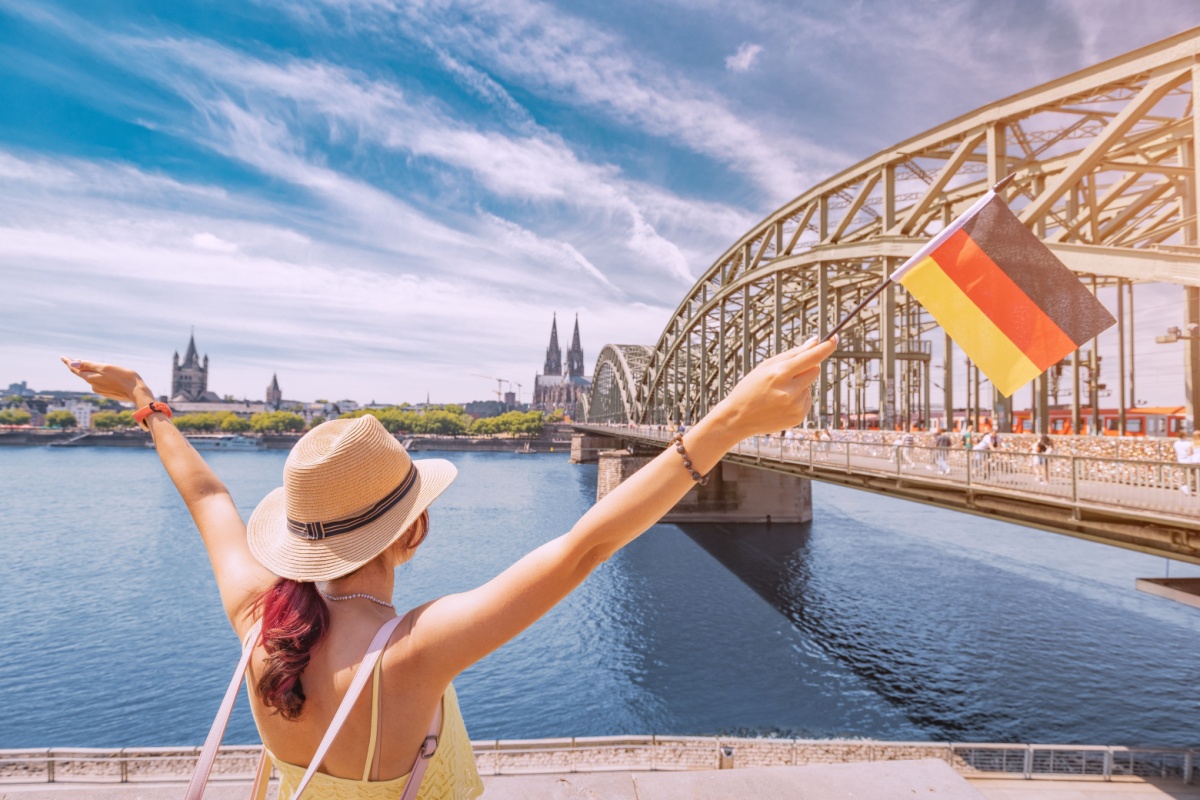
Related: Visit these top 10 German destinations and give these phrases a try!
Here are our top German travel phrases:
Starting with the basics, let’s learn how to greet people any time of the day. When entering a store or restaurant, it always helps to greet someone in their native language. Even if everything that comes after the “Guten Tag” is in English, this is a sign of respect that most will appreciate.
Greetings:
Hallo – Hello
Guten morgen – Good morning
Guten tag – Good afternoon
Guten abend – Good evening
Guten nacht – Good night
Tschüss / Auf Wiedersehen – Bye / Goodbye
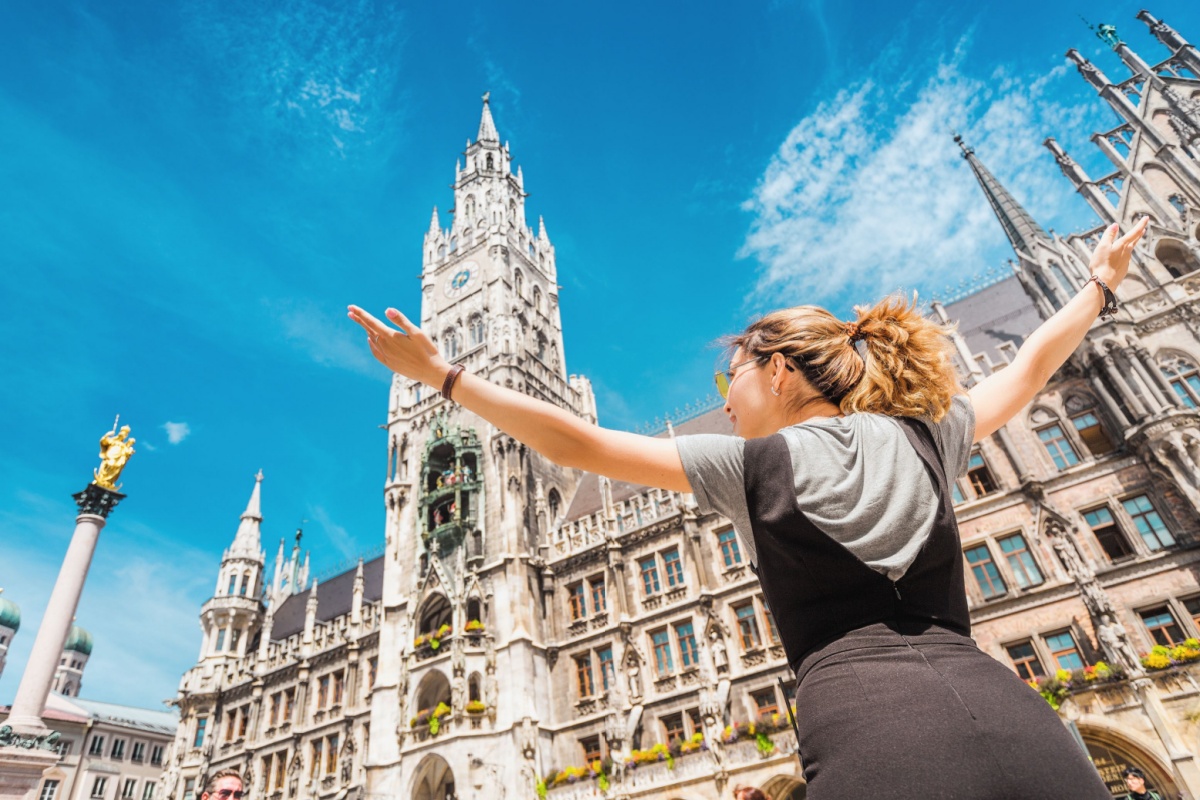
Related: Try out your new vocabulary when you visit Munich, the capital of Bavaria!
The magic words:
As with greetings, using the magic words (bitte und danke) shows respect and allows you to be polite and friendly without really having to say too much. In German, an easy way to add an extra level of politeness is to add the word “schön” after danke (thank you). While schön literally means “beautiful” or “good”, it is commonly used in conjunction with thank you to emphasise gratitude. Saying “dankeschön” is like saying “thank you very much”. So, if you’ve received good service, be sure to express it!
Bitte – Please
Danke – Thank you
Entschuldigung – Excuse me
Bitte schön – You’re Welcome
Ja – Yes
Nein – No
Ich heiße – My name is…
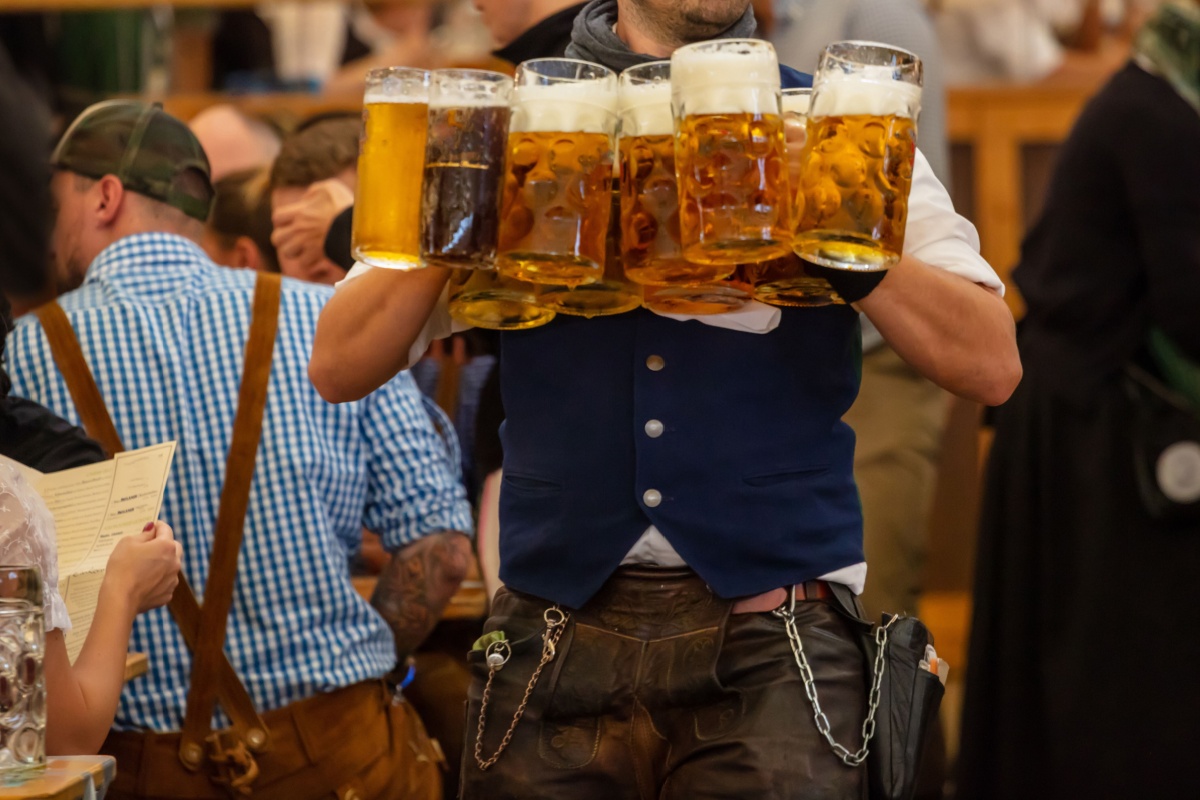
Related: Heading across the border to France? You’re going to need these French travel phrases!
Getting around:
Navigating a new place is always a challenge. Thankfully, modern innovations like Google Maps have made discovering foreign cities far less difficult. However, so as not to put all of our eggs in the technology basket, it’s useful to know the German names for a few key places. Many words are also the same as in English such as Hotel, Bank, Bus and Taxi. Fun fact, all nouns are capitalised in German!
Wo ist – Where is…
das Hotel – the hotel?
die Bank – the bank?
der Flughafen – the Airport?
der Ticketschalter – the ticket window?
der Strand – the beach?
Ich suche – I’m looking for…
der Bus – the bus
ein Taxi – a taxi
die Toiletten – the toilets
das Krankenhaus – the hospital
Wo ist die U-Bahn Station – Where is the metro station?
Wo sind die Taxis – Where are the taxis?
Wo ist der Ausgang? – Where is the exit?
Ist es in der Nähe? – Is it close by?
Ist es weit weg – Is it far?
Links und Rechts – Left and right
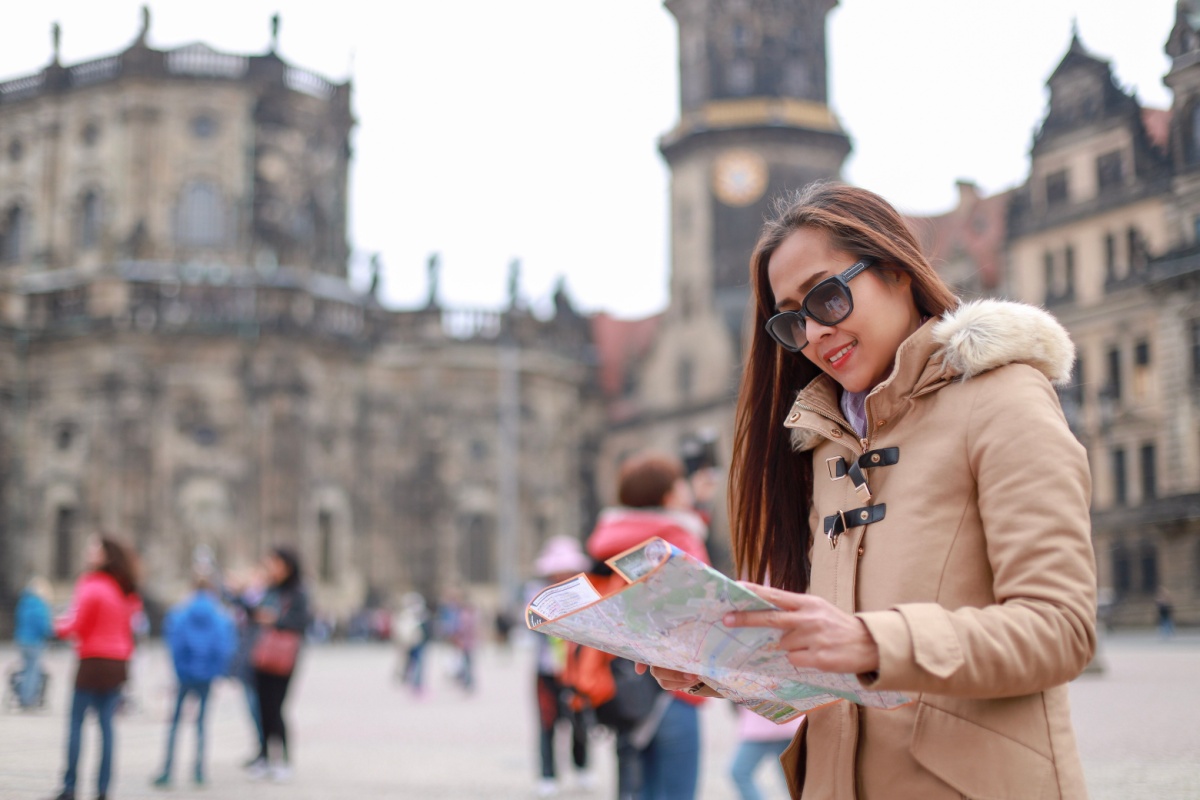
Related: You can also try out these phrases when you embark on a trip to Austria!
Miscommunications
Let’s be honest, miscommunications happen. Especially when speaking a language you’re not fluent in (yet)! These phrases will help you to communicate more effectively. Let someone know that you don’t speak German by saying “Ich spreche kein Deutsch”. Or, express that you don’t understand by saying “Ich verstehe nicht”. It can be intimidating to speak in another language but all that matters is that you try!
Ich verstehe nicht – I don’t understand
Könnten Sie das bitte wiederholen? – Could you repeat that, please?
Bitte sprechen Sie etwas langsamer – Speak a little slower, please
Ich spreche kein Deutsch – I don’t speak German
Ich spreche ein bisschen Deutsch – I speak a little German
And if all else fails…
Sprechen sie Englisch? – Do you speak English?
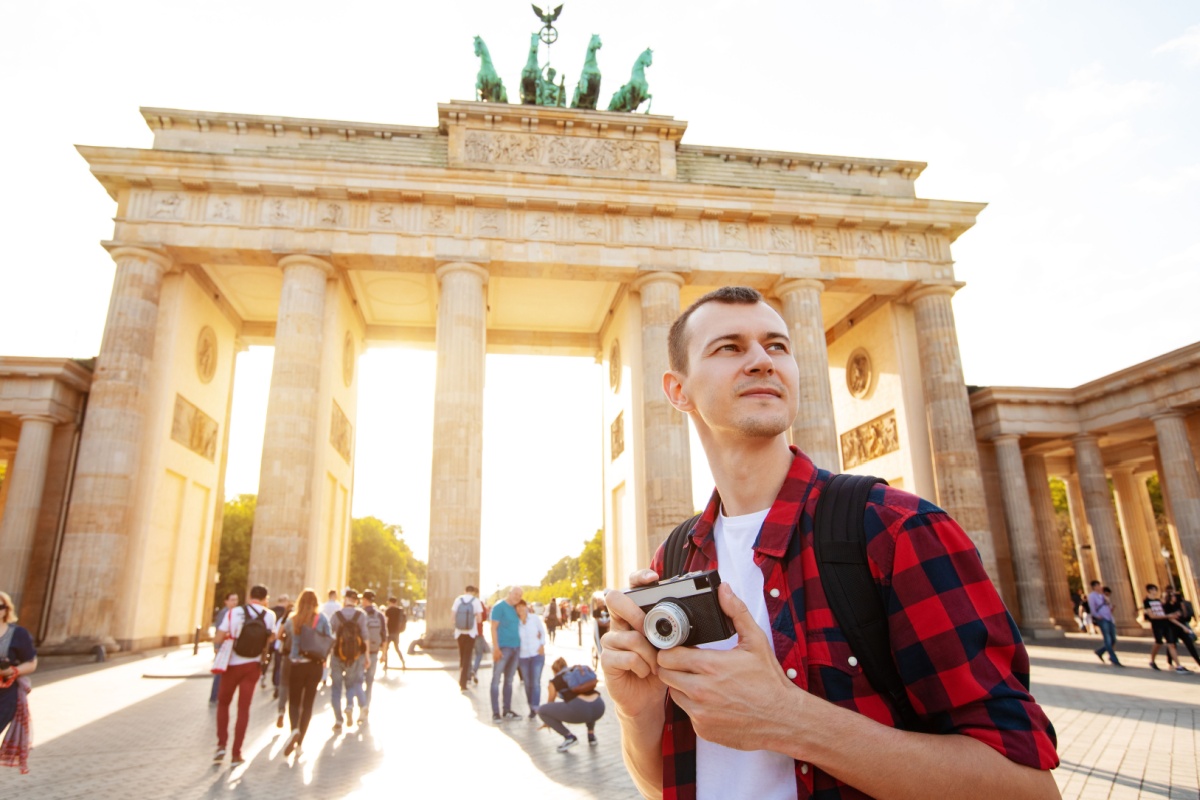
Related: Discover the world’s most multilingual countries.
Bist du bereit für Deutschland? Are you ready for Germany? Now that you’ve got your handy German travel phrases, all that you need to do is start exploring!
Discover a whole new world of languages, cultures, top sights and hidden gems when you book a multi-country Europe tour!